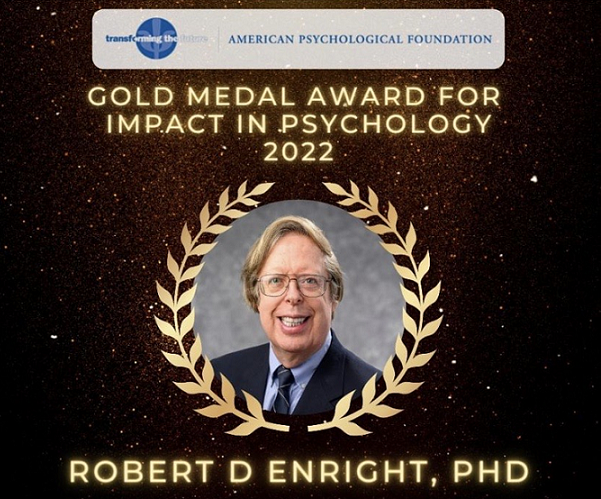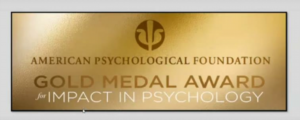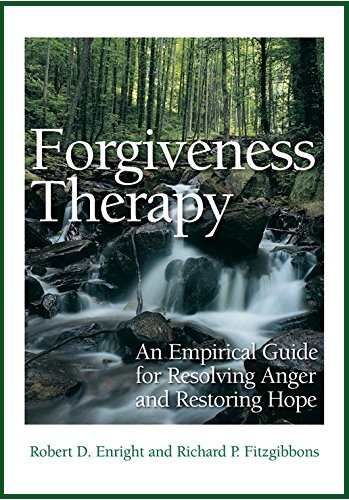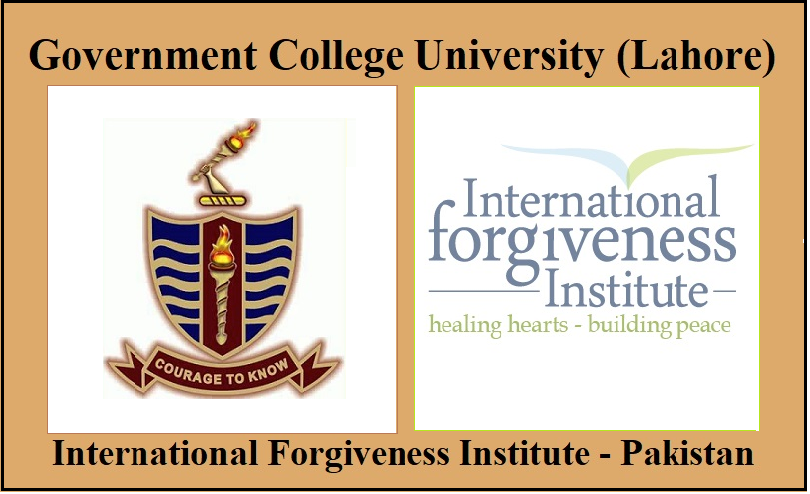Tagged: “peace-keeping”
“Forgiveness Pioneer” Wins Inaugural Gold Medal Award for Impact in Psychology
The scientific application of forgiveness, forgiveness education, and forgiveness therapy is being singled out for its “game-changing impact on the field of psychology” by the country’s largest and oldest organization of doctoral-level psychologists.
The American Psychological Foundation (APF), the grant-making arm of the American Psychological Association (APA), has just announced the winner of its first-ever Gold Medal Award for Impact in Psychology—Dr. Robert Enright, a professor of Educational Psychology at the University of Wisconsin-Madison, and founder of the International Forgiveness Institute.
Classified as one of psychology’s highest honors, the award “recognizes a psychologist whose work has had a game-changing impact on the field of psychology,” according to APF board president Terence M. Keane, PhD. He added that the new award acknowledges “a psychologist’s body of work that has been impactful, innovative, and transformational.”
Prior to this year, the award was called the Gold Medal Award for Life Achievement and it has been bestowed on exceptional psychological innovators by the APF for the past 65 years. Previous winners have included B. F. Skinner (the 1971 winner who developed behavior analysis), Harry Harlow (the 1973 winner and a UW-Madison psychologist like Dr. Enright), Rollo May (1987), Mary Ainsworth (1998), and Albert Bandura (2006).
“For the APA and the APF to position forgiveness alongside the creative achievements of those giants in the field of psychology is truly a profound pronouncement,” Dr. Enright said after learning of his recognition.
 As a grant making foundation, the APF helps fund psychologists and students worldwide who are using psychology to address major issues and improve lives. The APA has more than 133,000 members—doctoral-level researchers, educators, clinicians, consultants, and students (associate members). Combined, the two organizations have more than 500 staff members who focus on providing services to psychologists like Dr. Enright who have dedicated their lives to improving the mental health and welfare of others.
As a grant making foundation, the APF helps fund psychologists and students worldwide who are using psychology to address major issues and improve lives. The APA has more than 133,000 members—doctoral-level researchers, educators, clinicians, consultants, and students (associate members). Combined, the two organizations have more than 500 staff members who focus on providing services to psychologists like Dr. Enright who have dedicated their lives to improving the mental health and welfare of others.
Dr. Enright, a licensed psychologist, has devoted 37 years to the scientific study of forgiveness. As the unquestioned pioneer in the field of forgiveness, Dr. Enright published the first social scientific journal article on person-to-person forgiveness and the first cross-cultural studies of interpersonal forgiveness. He also pioneered forgiveness therapy and developed an early intervention to promote forgiveness–the 20-step “Process Model of Forgiving.”
The Enright Forgiveness Inventory (EFI), an objective measure of the degree to which research participants forgive another who has been unjust and hurtful toward them, is now used by researchers around the world. The Enright Forgiveness Inventory for Children (EFI-C), the Enright Self-Forgiveness Inventory (ESF-I), and the Enright Group Forgiveness Inventory (EGFI) have all become standard research tools known simply by their abbreviations.
Dr. Enright also pioneered the use of forgiveness therapy in clinical practice by developing  interventions that gained critical acclaim with the APA’s publishing in 2015 of Forgiveness Therapy, an instructional manual for clinicians written by Dr. Enright and psychiatrist Richard Fitzgibbons, MD. The two authors were selected in 2019 as recipients of the prestigious Expanded Reason Award presented by the University Francisco de Vitoria (Madrid, Spain) in collaboration with the Vatican Foundation Joseph Ratzinger/Benedict XVI (Rome, Italy) “to recognize and encourage innovation in scientific research and academic programs.”
interventions that gained critical acclaim with the APA’s publishing in 2015 of Forgiveness Therapy, an instructional manual for clinicians written by Dr. Enright and psychiatrist Richard Fitzgibbons, MD. The two authors were selected in 2019 as recipients of the prestigious Expanded Reason Award presented by the University Francisco de Vitoria (Madrid, Spain) in collaboration with the Vatican Foundation Joseph Ratzinger/Benedict XVI (Rome, Italy) “to recognize and encourage innovation in scientific research and academic programs.”
Dr. Enright’s ambitious approach to forgiveness education included the development of 14 Forgiveness Education Curriculum Guides for students in grades Pre-K through 12th. Through stories, children learn about the five moral qualities most important to forgiving another person–inherent worth, moral love, kindness, respect and generosity—and eventually, how they themselves can become a forgiving person.
A just-completed meta-analysis by University of Wisconsin-Madison researchers involving more than 1,500 students in 10 countries shows that students enrolled in Forgiveness Education Programs demonstrated reduced anger and increased forgiveness toward those who have hurt them. Those forgiveness guide lesson plans, distributed through the IFI, have been requested by educators in more than 30 countries and contentious regions around the world.
 Adding to its forgiveness education agreements with many of those countries, the IFI’s newest Branch Office is IFI-Pakistan, a partnership with the Government College University Lahore, Lahore, Pakistan–the first in that country and in Southern Asia. In Greece the IFI has trained more than 600 grade school instructors in the past 8 years who are now teaching forgiveness to more than 6,000 Greek students.
Adding to its forgiveness education agreements with many of those countries, the IFI’s newest Branch Office is IFI-Pakistan, a partnership with the Government College University Lahore, Lahore, Pakistan–the first in that country and in Southern Asia. In Greece the IFI has trained more than 600 grade school instructors in the past 8 years who are now teaching forgiveness to more than 6,000 Greek students.
“Although the virtue of forgiveness has made astronomical strides in the past few decades, we are just on the edge of what it can offer us for the future,” Dr. Enright says. “Forgiveness must have a seat at the peace-keeping and peace-making table.”
According to Dr. Enright, his body of work has clearly demonstrated that as people forgive, they become less angry, less depressed, less anxious, and more hopeful of their future. In other words, people become more peaceful within themselves, making the possibility of peace with others more likely.
Dr. Enright has outlined his grass-roots approach to peace through a variety of forums beginning with his 2010 article “Forgiveness Education as a Path to Peace,” his 2014 address to the United Nations Population Fund “Forgiveness as a Peace Tool,” and his recent series of 3 essays on peace published on the Psychology Today digital website.
In 2015, Dr. Enright accompanied Eva Mozes Kor, a survivor of the Holocaust, on a series of US radio interviews to promote peace through forgiveness. His peace initiatives have earned him peace educator awards including being named a Paul Harris Fellow by Rotary International in 2016.
Time magazine has called Dr. Enright “the forgiveness trailblazer.” The Los Angeles Times said Dr. Enright is “the guru of what many are calling a new science of forgiveness.” The Christian Science Monitor called Dr. Enright “the father of forgiveness research.”
As the recipient of the 2022 Gold Medal Award for Impact in Psychology, Dr. Enright will be honored during APA 2022–the annual American Psychological Association convention on August 5th in Minneapolis, MN. He will receive a gold medal plaque and a modest honorarium during the APF Friends of the Foundation reception.
The Path to Peace Through Forgiveness
Dr. Robert Enright and the organization he founded, the International Forgiveness Institute (IFI), undertook their first foray into the peace movement in 1999. That was the year they worked with a national team led by the Rev. Jessie Jackson that convinced Yugoslav (now Serbia) President Slobodan Milošević to release three captive American soldiers during the Kosovo Conflict.
In 2002, Dr. Enright initiated a forgiveness education program in Belfast, Northern Ireland that has now been in operation for 20 consecutive years. His Belfast work is featured in the award-winning documentary The Power of Forgiveness. Dr. Enright started similar programs in Liberia, West Africa in 2011 and in Israel-Palestine in 2013. He now has such programs in more than 30 contentious regions around the world and an IFI Branch Office in Pakistan at the Government College University Lahore (GCU-Lahore, Pakistan).
Eight years ago, Dr. Enright was invited by the United Nations to join an international “Expert Group” tasked with responsibility for developing intervention models aimed at ending gender-based violence across the globe. His initial presentation to the United Nations Population Fund in New York City was titled “Forgiveness as a Peace Tool.” Just three weeks later, delegates at the United Nations Peace Conference in Geneva, Switzerland, voted to embrace forgiveness and education as essential tools in peacebuilding.
Since those early years of his career, Dr. Enright has developed scores of peace-education initiatives and research projects in some of the world’s most contentious areas. Two of those projects were published recently involving teachers in the case of China and adult clients in the case of Pakistan. Other research projects have demonstrated that children as young as 4-5 years are capable of absorbing the basics of forgiveness and making it a natural part of their early life.
In 2015, Dr. Enright accompanied Eva Mozes Kor, a survivor of the Holocaust, on a guest tour of US radio and television stations to promote peace through forgiveness. Ms. Kor, with her twin sister Miriam, was subjected to human experimentation under Josef Mengele at the Auschwitz concentration camp during World War II yet she publicly forgave her tormentors.
During that tour, Ms. Kor repeatedly used this axiom:
“Let’s work together to heal the world through forgiveness. Not bullets, not bombs. Just forgiveness. Anger is a seed for war. Forgiveness is a seed for peace.”
In a 2018 guest blog that Ms. Kor wrote for this website, “My Forgiveness,” she writes that forgiveness can “improve life for everyone in the world.” Read Dr. Enright’s eulogy to Ms. Kor (upon her death on July 4, 2019): “In Memoriam: Eva Mozes Kor and Her Independence Day.”
In recognition of his contributions to the peace movement, Dr. Enright was awarded the Distinguished Peace Educator of the Year Award (2008-2009), from the Wisconsin Institute for Peace and Conflict Studies. In 2012, he received the Cecil Findley Distinguished Service Award for international peacemaking and was named a Paul Harris Fellow by Rotary International in 2016. Three years later he was awarded the 2019 Mazzuchelli Medallion from Edgewood College along with a pronouncement that “forgiveness, relevant in every age, may be one of the clearest paths to peace, individually and collectively, for our world today.”
While Dr. Enright was one of the first forgiveness research investigators to envision a path to peace through forgiveness, he says there is still much more work that needs to be done.
“We must double our efforts so that peace and forgiveness become a team that is routinely tapped in matters of conflict,” Dr. Enright says. “The flames of resentment can be extinguished by sound forgiveness programs.”
Read Dr. Enright’s essay in Psychology Today, “Reflecting on 30 Years of Forgiveness Science.”
I understand there is forgiveness work done in Kosovo. If so, would you please let me know. I would like to get involved with that.
In September of 2014, I was invited and attended a meeting at the United Nations Population Fund in New York City. The goal of that meeting was to discuss and possibly begin forgiveness intervention work in Kosovo. This never materialized, much to my disappointment. Yet, if you are inspired to pick up that work, I would delight in working with you on this. We have resources on forgiveness education that can be translated into different languages and brought into families, schools, and houses of worship.



